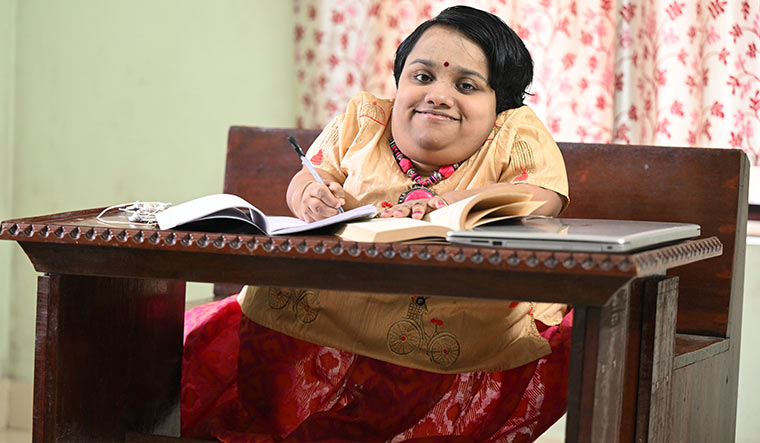Dr Sharada Devi V.
academic and disability-rights advocate, Thiruvananthapuram (Kerala)
Sharada Devi identifies as a “person with physical disability and a wheelchair user”, after a congenital condition that arrested bone growth left her physically impaired. Despite the challenges caused by an ableist society, she earned a PhD in disability studies and views her research and writing as part of her ongoing battle for disability rights. Devi’s aspiration is to become an assistant professor in English.
The change I would like to see
“In India, we have the Rights of Persons with Disabilities (RPwD) Act that has provisions to help people with various disabilities. However, the country has failed to implement it, because the perspective of Indian society on disability is problematic. Even now, the public attitude towards disability is based on a charity discourse.
Just like gender, disability is also a social construct. People can have different kinds of impairments, but persons with impairment become disabled only when society denies them an enabling environment that gives them a chance to lead a dignified life. What we see now is society trying to limit its accountability towards persons with disabilities by referring to them euphemistically as differently-abled. Persons with disabilities want neither sympathy nor glorification, as both are dehumanising.
Also read
- 'Want to help create inclusive spaces': Tanvi Sriramaneni
- 'Parents should be educated about breastfeeding': Jincy Varghese
- How women of this generation are more opinionated and outspoken
- 'Want to see more psychologists spreading awareness on social media': Divija Bhasin
- 'Want to change culture of unkind behaviour at workplaces': Podcaster Cardoz
- 'We cannot call ourselves animal lovers if we ignore their suffering': Priyanka Mehar
So, what I would like to see is an attitudinal change in society. And, there should be a rights-based approach to implementing the provisions in the RPwD Act. Every person should get a chance to lead a dignified life.”
As told to Nirmal Jovial

